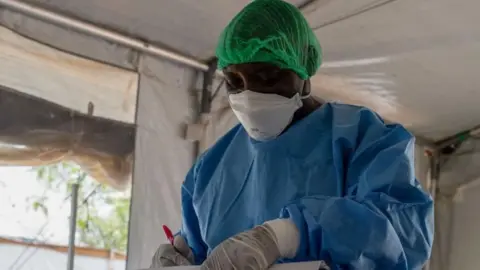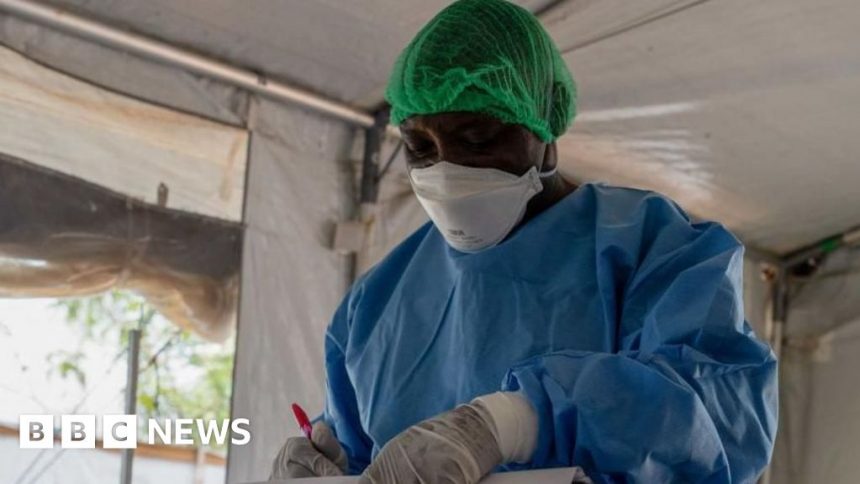Mystery outbreak in DR Congo likely caused by malaria
 AFP
AFPMalaria has been identified as the likeliest cause of an illness that has killed more than 80 people in south-western Democratic Republic of Congo, Africa’s main health agency said.
Victims of the previously unknown disease had been suffering flu-like symptoms such as fever, headaches, breathing difficulties and anaemia.
The majority of samples that have been tested indicated that they had caught malaria – which is caused by a parasite carried by mosquitoes and is endemic in the region – with widespread malnutrition exacerbating the situation.
However health experts are not ruling out the possibility of other factors at play in the Panzi health zone.
Concerns about the illness have grown following the death of an adult male patient exhibiting symptoms associated with haemorrhagic fever.
This prompted speculation about a potential viral infection occurring at the same time as malaria, Dr Ngashi Ngongo, from the Africa Centres for Disease Control and Prevention (Africa CDC), told journalists on Thursday.
Samples from the deceased patient have been sent to the Congolese capital, Kinshasa, for testing, with results expected within the next week.
Africa CDC, the UN’s World Health Organization, and other agencies are intensifying investigations into the outbreak, with further testing under way.
You may also be interested in:
 Getty Images/BBC
Getty Images/BBCGo to BBCAfrica.com for more news from the African continent.
Follow us on Twitter @BBCAfrica, on Facebook at BBC Africa or on Instagram at bbcafrica








